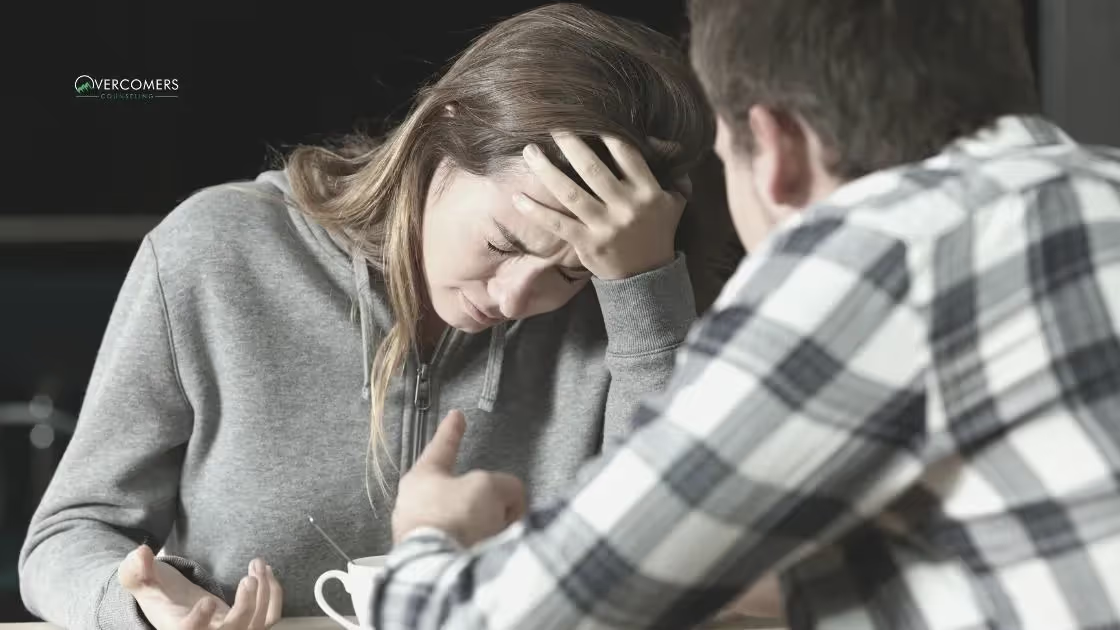Many children get into romantic relationships in their teenage years.They often start dating with little or no knowledge of a healthy romantic relationship....

Many children get into romantic relationships in their teenage years.
They often start dating with little or no knowledge of a healthy romantic relationship.
Unfortunately, many teenagers find themselves in toxic relationships that may affect their sense of self, confidence, social life, and mental well-being.
You can provide child support as parents by looking out for signs your child is in an unhealthy teenage romantic relationship.
Toxicity in relationships manifests in various forms; however, one of the most dangerous is physical abuse.
If you notice your child suddenly uses several medications, hides their body, or has unexplainable injuries, there is a probability your child is physically violated in their romantic relationship.
Another sign that your teenager's relationship is unhealthy is if the situation forces them to change their personality.
Healthy relationships should encourage you to be a better version of yourself.
So, if your child turns mean, aggressive, withdraws, or develops other negative behaviors, it's a sign their relationship is negatively affecting them.
Similarly, a sudden drop in grades can indicate your child's new relationship is unhealthy.
They may lose the ability to focus in school, skip classes or even give up on their dreams due to the negative influence of their toxic partners.
Consider this overview to learn five signs your child is in an unhealthy teenage romantic relationship:
Unfortunately, many teenagers today are victims of abuse and violence in their romantic relationships.
Dating violence has become widespread among young couples, affecting the victim's physical and mental health.
If you're looking out for signs your child is in an unhealthy teenage romantic relationship, look out for signs of abuse.
One of the signs of physical abuse is an increase in your teenager's intake of over-the-counter drugs.
If your teen regularly visits the pharmacy for drugs and spends most of their time "recovering," you might want to check in on them as they might be experiencing pain from physical abuse.
Also, if your teen comes home with injuries or cuts after hanging out with their partner, give them first aid and ask for explanations on how they got those injuries.
If your child beats around the bush or tries to evade the truth, you might want to investigate their relationship.
Another sign of physical violence is when your teen suddenly starts to hide their body.
It's natural for adult children to shy away from exposing their bodies to their parents and request privacy; however, if your child suddenly avoids coming in close contact with you, something might be wrong.
Unhealthy relationships can affect a child's academic progress.
Although children have different learning capabilities and may find some classes more challenging, suddenly getting bad grades can be one of the signs your child is in an unhealthy romantic relationship.
Several factors may cause your teen's grades to drop when they are in an unhealthy relationship.
If your teen is in a relationship with a demanding and possessive partner, they may have limited time to study or do assignments.
The negative influence from their partner can also make them skip classes or tests and do things they usually wouldn't.
Likewise, verbal and physical abuse can cause high-stress levels and mental health disorders, including severe anxiety and depression, making it impossible to study or concentrate.
Furthermore, a relationship with someone who doesn't have goals or dreams can negatively influence your teen.
Your teen may be coerced into giving up on their dreams and stop putting effort into studying.
Emotional abuse is quite common in unhealthy teenage relationships.
This form of abuse is dangerous as it can damage a child's self-confidence, self-worth, and emotional development and instill fear in them.
Thus, one of the signs your child is in an unhealthy teenage romantic relationship is if they are scared of their partner.
If your teen stops participating in their favorite activities and feels the need to ask for their partner's permission constantly, they are in an unhealthy relationship.
Controlling partners can make it scary and difficult for their significant other to do things without them.
Likewise, if your teen shows signs of fear when around their partner, they might be enduring physical or emotional abuse.
Take note of signs of fear, including fidgeting or flinching when your child is around their partner.
Emotional abuse involves demeaning, criticizing, humiliating, threatening, rejecting, and building fear in a person.
In a relationship, emotional abuse affects a person's psychological well-being making it difficult to leave or function properly.
Thus, if you notice your child is scared of their partner, they may be abused, and you must step in immediately.

If your teenage child suddenly changes their physical appearance, it may mean they are trying to modify themselves in order to appeal to their romantic partner.
Thus, one of the signs your child is in an unhealthy romantic relationship is when they become more self-conscious and feel an urgent need to change their physical appearance.
While there is nothing wrong with attempting new styles or wardrobe changes, it becomes unhealthy when teenagers feel pressured to dress or appear in a specific way to gain their partner's attention.
Being too conscious of physical looks indicates that your teenage child lacks confidence or has grown reliant on the feeling of belonging that comes with admiration from their significant other.
When you notice this, you can go ahead and ask your child how they view themself.
This discussion can help you decipher whether it's a natural teenage curiosity to try new things or whether their partner is influencing them.
Beauty standards and pressure from a romantic partner can affect a teenager's self-image.
As a parent, you can make efforts to restore your teen's self-confidence and help them build a positive self-image.
Remind your teenage child to love their bodies, accept who they are, and change for nobody except themself.
One of the recognizable signs your child is in an unhealthy teenage romantic relationship is a change in personality.
Going through toxicity in a romantic relationship can affect a teenage child's emotional well-being, making it difficult to be their usual self.
If you see your child go from being extroverted and full of life to being withdrawn and depressed, have a conversation with them.
A personality change could be a sign they are being controlled, belittled, or abused by their partner.
Similarly, something may be wrong if your respectful and easy-going teenager suddenly turns bad.
If you get reports from school for your child's bad conduct or witness them being rude to strangers or even you, step in and talk to them.
The pressure to fit in and appear "cool" to their partners often influences teenagers to develop bad behaviors in romantic relationships.
Likewise, constant abuse and instability in unhealthy relationships can completely change a teenager's mental and emotional state of mind.
At the onset of their personality change, it's crucial to tackle the issue immediately and help them restore their sense of self.
Unhealthy relationships can be detrimental to your teenage child's academic performance, emotional state, and mental well-being.
As parents, you must support your child in their teenage dating life by being curious about their relationship, providing positive attention, setting limits, and teaching your teen the constituents of a healthy relationship.
Signs your child is in an unhealthy teenage romantic relationship include your teen's change in personality, sudden bad grades, fear for their partner, a consciousness of their physical appearance, and signs of violence.
We are here to support parents. Please don't hesitate to reach out to schedule with one of our licensed counselors.
https://familyresourcesinc.org/2019/01/signs-teen-unhealthy-relationship/
https://www.verywellfamily.com/what-is-emotional-child-abuse-4157502
https://familydoctor.org/teen-abusive-relationship/
https://www.allprodad.com/6-signs-your-teen-is-in-a-toxic-relationship/
You can teach your child persistence by modeling the behavior yourself, encouraging them to take risks, setting goals and tracking progress, praising effort, and providing support and guidance.